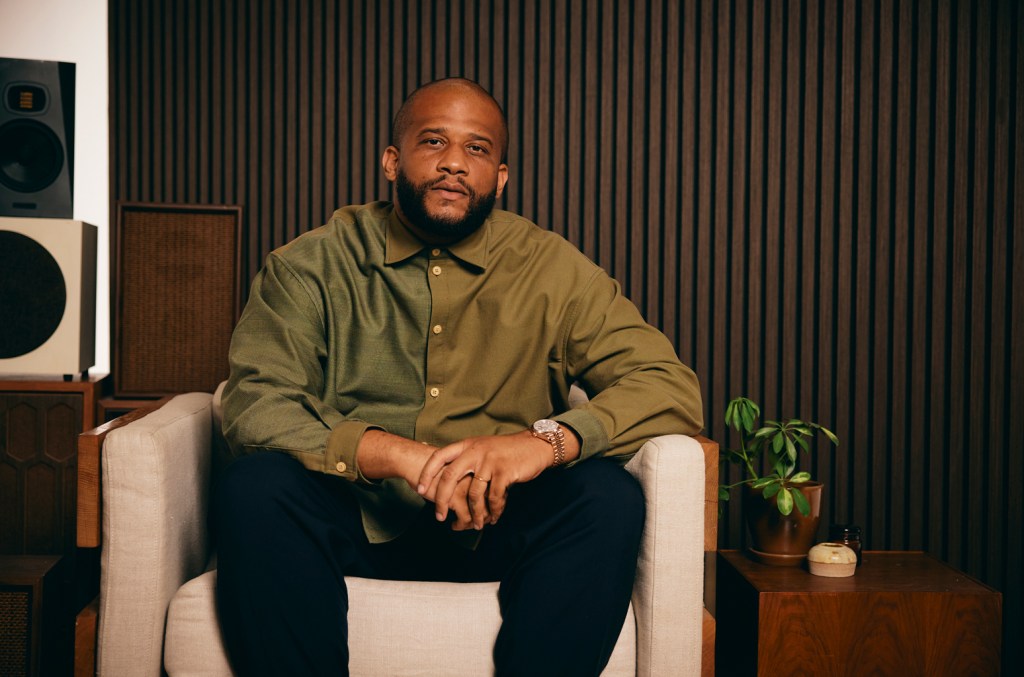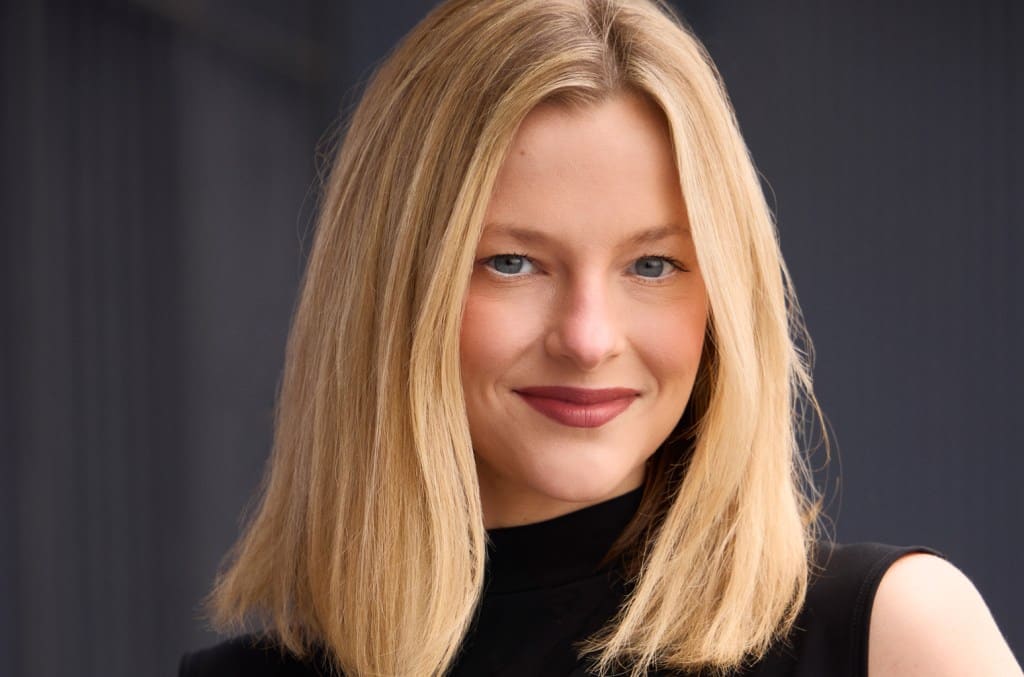Record Labels
Page: 14
Puerto Rican salsa singer Christian Alicea has signed a record deal with Rimas Entertainment, Billboard can announce. The announcement comes ahead of the release of Alicea’s upcoming single “Hello, What’s Up?,” which is set to drop Thursday (Feb. 20) at 7 p.m. ET. “I’m feeling a lot of emotions but mainly I feel proud,” Alicea […]
HYBE is partnering with Grammy-winning producer and OneRepublic frontman Ryan Tedder to form a new boy group, the company announced Thursday (Feb. 19). The project, to be led by Tedder alongside HYBE chairman Bang Si-Hyuk and HYBE America CEO Scooter Braun, will kick off with a global talent search. Once the members of the group […]
The REPUBLIC Collective, which includes Island Records, Def Jam Recordings, Mercury Records and Republic Records, has announced several executive promotions and new hires.
Recently, Jeffrey Remedios, former Universal Music Canada chief, was appointed president of strategic development. In his new role, Remedios oversees high-priority growth initiatives for Republic’s labels, focusing on international A&R, Republic recording studios, brand expansion, and more, reporting directly to REPUBLIC Collective CEO Monte Lipman and COO Avery Lipman.
Key promotions across departments include Joe Carozza as executive vp and global media officer, Brittney Ramsdell as evp of creative sync, Julie Vastola as svp of creative, and Zoë Briggs as vp of global marketing. Gary Spangler revamped the Audience team, elevating Natina Nimene to evp of urban audience and artist relations, Lucas Romeo to evp of pop audience, Brett Dumler to svp of pop audience, James Brown to svp of urban audience, and Roya Raji to vp of touring.
Trending on Billboard
Kevin Lipson expanded his team with strategic hires and promotions, including longtime Capitol Music Group svp of streaming strategy Jeff Temske coming over as evp of global research and analytics, and Colin Yost elevated to vp of innovation and gaming partnerships. Additionally, Brian Sutnick was promoted to evp of global replay strategy, Ryan Stevens to svp of commerce, Charlene Thomas to svp of global replay strategy, and Blair O’Brien to vp of commerce.
Monte Lipman praised these recent advancements, calling them “hard-earned and well-deserved,” and emphasized the collective’s commitment to artist development and finding “generational talent.”
The executive changes follow another record-breaking year for REPUBLIC Collective, which topped Billboard’s major year-end label rankings for the fourth consecutive year. In 2024, the collective amassed 72 albums on the Billboard 200, including 13 No. 1s, and 209 songs on the Hot 100, with eight chart-toppers, reinforcing its dominance in the music industry.
Record executive and former artist manager Abou “Bu” Thiam has formed a new partnership with Atlantic Music Group that brings his BuVision label to the Warner-owned major, Billboard has learned. As part of the deal, BuVision’s artists’ projects will now be released and marketed through Atlantic moving forward. Artists as part of the venture include […]
On Saturday, Feb. 15, Billboard and EMPIRE came together at EMPIRE’s San Francisco studios to celebrate Billboard’s second annual Sports and Music issue, honoring some of the most powerful people operating at the intersection of the industries of sports and music. The issue, which features EMPIRE founder/CEO Ghazi on the cover, as well as a […]
Warner Records has partnered with respected hip-hop and R&B executive Tim Hinshaw to launch Free Lunch Records, an extension of his creative and touring firm Free Lunch Agency, the companies announced on Wednesday.
The collaboration aims to provide Warner artists ready access to Free Lunch’s creative, touring and sync services while serving as a new platform for emerging talent. Warner Records senior vp of A&R Ericka Coulter has been named general manager of the upstart label, which also announces its first two signings in Syd and Alex Isley. Coulter will keep her continue her role at Warner, the label noted.
Hinshaw announced Free Lunch Agency in August 2023 while still head of hip-hop and R&B at Amazon Music, a role he held five years. At launch, Free Lunch said its goal was to “authentically connect brands with artists and culture through bespoke storytelling and real-life experiences.” The agency’s name is a nod to the free lunch programs provided by public schools and parks in underserved communities nationwide.
Trending on Billboard
While at Amazon, Hinshaw played a key role in securing major partnerships, including the exclusive livestream of Kendrick Lamar’s The Big Steppers Tour and Amazon Music Live performances featuring Lil Baby, A$AP Rocky, and 21 Savage. He also spearheaded deals for high-profile events, including for Tyler, The Creator, J. Cole’s Dreamville Festival and Summer Walker.
As Amazon executive Steve Boom said at the time, Hinshaw put Amazon Music into the conversation among the hip-hop and R&B community “in a way, frankly speaking, we were not.” His efforts there earned him executive of the year honors in Billboard’s R&B/Hip-Hop Power Players list in 2022.
Prior to joining Amazon Music, Hinshaw built the urban music division at Fender Guitars, worked in music marketing for Vans and co-managed his brother, songwriter Prince Charlez, leading to a joint venture with Island Def Jam and a global publishing deal with Universal.
Warner Records co-chairman and CEO Aaron Bay-Schuck praised Hinshaw’s ability to create impact beyond music.
“Tom [Corson] and I are thrilled to welcome Tim and his Free Lunch team to the label,” said Bay-Schuck. “His expertise stretches far beyond finding and nurturing talent – he knows how to make sure his artists are making an impact. Early on in our conversations, it was clear bringing Tim and Free Lunch into the Warner fold would be a perfect synergy. Tim is immersed in the vast culture of hip-hop and R&B, across music, sports, fashion, and live entertainment, and together we’ll work towards our shared goal of uplifting the best and brightest in the genre.”
Hinshaw added that “by uniting Free Lunch Agency with Warner Records, we can combine our expertise in creative, music, and brand building to elevate the first-class roster,” saying, “together we’ll expand the scope of artist narratives to connect even more deeply with fans across the globe.”
Nashville-based label Big Machine Label Group, a subsidiary of HYBE America, has appointed Jodi Dawes to the role of vice president of publicity and communications, to oversee the label group’s public relations department and lead strategy across BMLG’s imprints Big Machine Records, The Valory Music Co. and Nashville Harbor Records & Entertainment. Dawes reports directly […]
On Valentine’s Day, Drake teamed up with OVO signee and frequent collaborator PARTYNEXTDOOR to release the collaborative album Some Sexy Songs 4 U, a 21-track project that marks his first release since the three-track project 100 Gigs last August.
More significantly, it’s his first release since he filed a lawsuit against his record label, Universal Music Group (UMG), on Jan. 15 for defamation over the release of Kendrick Lamar’s “Not Like Us,” the searing, chart-topping diss track aimed at the Canadian rapper that was released by UMG’s Interscope Records. In the lawsuit, lawyers for Drake alleged that “UMG intentionally sought to turn Drake into a pariah, a target for harassment, or worse,” by pushing a “false and malicious narrative” that the star rapper was a “certified pedophile,” as Lamar rapped on the track. (UMG, in response, said in part, “Not only are these claims untrue, but the notion that we would seek to harm the reputation of any artist—let alone Drake—is illogical.”)
That raises the question: How is Drake able to release an album while he’s actively suing the record label to which he’s signed?
Trending on Billboard
First, the logistics: The new album was released jointly through OVO Sound, to which PARTYNEXTDOOR is signed, which is distributed by Santa Anna, a company under Sony Music Group’s Alamo Records umbrella; and OVO, which is Drake’s vehicle through UMG’s Republic Records. They are co-billed that way and in that order on digital service providers like Spotify and Apple Music. These types of joint releases are relatively common; think Future and Metro Boomin’s back-to-back We Don’t Trust You albums last year, released jointly via Future’s label Epic Records (also a Sony label) and Metro’s label Republic Records. (Coincidentally, We Don’t Trust You contained the song “Like That” featuring Lamar, the track that kicked off the Drake-Kendrick beef in earnest.) Another, more current, example is the Lady Gaga–Bruno Mars collaboration “Die With A Smile,” currently sitting at No. 1 on the Hot 100 for its fifth week, which is co-billed to Gaga’s Interscope and Mars’ Atlantic Records.
That means UMG would have had to legally clear Drake’s appearance on the album, an outcome that a handful of lawyers consulted by Billboard say would not necessarily be affected by any ongoing litigation. “Suing UMG shouldn’t preclude him from working with them legally,” one lawyer says. “As for their desire to be in a contractual relationship with him while he is litigating against them, that’s a different story.” Adds another, who agreed that it would not affect his ability to release an album: “Whether or not UMG decides to properly fund and support a release that Drake wants to do while Drake is suing UMG is another question.”
A UMG spokesperson did not immediately respond to a request for comment. In its response to the initial lawsuit last month, the company wrote, “We have invested massively in [Drake’s] music and our employees around the world have worked tirelessly for many years to help him achieve historic commercial and personal financial success. … Throughout his career, Drake has intentionally and successfully used UMG to distribute his music and poetry to engage in conventionally outrageous back-and-forth ‘rap battles’ to express his feelings about other artists. He now seeks to weaponize the legal process to silence an artist’s creative expression and to seek damages from UMG for distributing that artist’s music.”
An artist suing their record label is not an unheard-of occurrence; it has happened several times through the years, often over royalty payments or other contractual disputes. Suing their own record label for defamation over a diss track, however, is unprecedented; given the mutually beneficial financials involved in an artist and an album’s commercial success, it would stand to reason that UMG would not aim to materially harm one of their superstar artists. But that’s a determination for the courts to make.
Additional reporting by Elias Leight.
BBR Music Group/BMG Nashville has added to its artist roster, signing singer-songwriter Alexandra Kay to the label, Billboard can reveal.
BBR Music Group/BMG Nashville is also home to artists including CMA/ACM entertainer of the year winner Lainey Wilson, Billboard 200 chart-topper Jelly Roll, and “Try That in a Small Town” hitmaker Jason Aldean.
“There is not a better team that could be on this journey with me,” Kay tells Billboard. “I truly, from the bottom of my heart, think I am in the best hands in Nashville. I’m proud of my journey and am really excited to see what BBR can do with pouring gas on this fire.”
Kay is celebrating her new label deal by giving fans a taste of her new music, with the upcoming song “Cupid’s a Cowgirl” to release on Feb. 21.
Trending on Billboard
“It was just a really magical moment where we were just fed the song from the heavens and we were the outlet for it, and we had so much fun writing it,” Kay says.
Last year, Kay opened arena shows on Jelly Roll’s Beautifully Broken tour, and opened for Morgan Wallen’s sold-out Hyde Park show in London. On Feb. 23, she’ll launch her headlining Cupid’s A Cowgirl Tour in the U.S. and Canada, plus visit the U.K. and Europe on her All I’ve Ever Known Tour. Last year, she also teamed with Jelly Roll for the song “Leave The Light On,” as part of the soundtrack for the film Twisters.
“Having known Alexandra for a number of years, I came away from every interaction impressed not only with her talent, passion and work ethic, but also her strategic mind and determination to build a career not for a moment, but for a lifetime; a career anchored in the strong bond she is building with audiences around the world,” Jon Loba, president, Frontline Recordings, Americas, BMG, said in a statement. “It felt much like when I was first getting to know Jelly Roll. So, it was ironic when, completely separate from me, he saw the same qualities and invited her to tour with him last year. We are so excited to welcome Alexandra to the BMG family and look forward to continuing to help her build that lifetime career.”
The label deal marks a new milestone in a career that has already seen Kay find success on the Billboard charts and on the road. Illinois native Kay made her Grand Ole Opry debut in 2022. Her upcoming Europe shows will mark a return for Kay, who has previously performed at London, England’s C2C festival. Kay has also notched four top 10 songs on Billboard’s Country Digital Song Sales chart, including “Best Worst Ex” with Julia Cole, as well as “That’s What Love Is,” “Backroad Therapy” and “Everleave.”
She released her debut project, All I’ve Ever Known, in 2023; that same year, Kay rose to No. 12 on Billboard’s Emerging Artists chart. All I’ve Ever Known centered around healing from heartbreak after weathering a divorce, with songs including “Everleave” and “Painted Him Perfect.” Kay tells Billboard that her forthcoming album will have a decidedly more upbeat flair.
“I’m so excited for everybody to get a taste of this new era from me. I look back at All I’ve Ever Known, and it was a divorce album, and I look at that as I was surviving during that time. I’m thriving in this record and I know who I am. It’s full of confidence. It’s full of a healed heart that’s just wide open and ready to accept love again. And it’s definitely the most pop-leaning thing I’ve ever done, which is something that I’ve really been wanting to dip my toes into.”
If you run a successful independent label and you’re looking for an infusion of cash, the current music business is awash in opportunity.
“Independent labels often lead in trendsetting and new business models, such as the vinyl resurgence, event-driven branding and digital community-building,” says Wez Saunders, CEO of Defected Records, a long-running bastion of dance music. “And the shift toward streaming and digital monetization has allowed [indies] to grow without traditional major-label infrastructure. This success has made independent labels attractive investment opportunities.”
Sony Music in particular has quietly been investing in indies — not only Rimas, but also Mass Appeal, Fat Possum and Black 17 — according to executives with knowledge of the deals.
The size of the commitment varies: Sources say Sony took a minority stake in Fat Possum; a significant minority interest in Black 17; and a significant majority interest in Mass Appeal. All these labels have previous relationships with Sony through its distribution and services wing, The Orchard, which was born in the independent community and has spent many years nurturing connections there.
Trending on Billboard
This approach can help a major label maintain market share and provide a cost-effective mechanism to keep indie labels in the larger Sony ecosphere. It also allows a major to discreetly benefit from the increasing popularity of the independent sector.
“Large players have been securing stakes in indies to maintain their dominance while still allowing these labels to operate independently,” Saunders notes. “This gives majors indirect control over influential indie ecosystems without fully absorbing them into their corporate structures.”
Executives at Mass Appeal, Fat Possum and Black 17 declined to comment or did not respond to requests for comment. A representative for Sony Music declined to comment.
Major labels have been interested in independent companies for more than half a century. Over the years, many of the most famous indies — including Motown, Atlantic Records, A&M Records, Geffen and Island Records — have been vacuumed up into corporate collectives. In fact, these acquisitions are part of how major labels become “major” in the first place.
“Your clock is running when you’re at a major conglomerate,” explains Daniel Glass, founder of Glassnote Records and a former major label president and CEO at EMI Records Group back in the mid-1990s. “You need market share, you need profit. It’s much easier to buy a known entity.”
Acquiring independent labels, or parts of them, is even more important for the majors today as their market share is whittled down by the increased opportunities available to unsigned artists, who can easily upload music to streaming services through distribution companies. And getting a piece of indies has additional value in an increasingly international music industry — MIDiA Research estimates that the independents’ share of the global recorded music business is 40.8%.
In 2024, Sony Music CEO Rob Stringer described his company as “undoubtedly the most aggressive major music group in M&A over the last three years,” and acquiring stakes in labels distributed by The Orchard is just one part of that strategy. Since the start of 2021, Sony has also acquired the label services company AWAL, the Brazilian label Som Livre, the catalog of RECORDS, the Spanish label Altafonte, and a majority stake in the label Alamo.
The other two majors have made splashy purchases during this period as well, though not as many: Universal Music Group acquired [PIAS] and Downtown Music Holdings along with securing a stake in the Nigerian label Mavin Global, while Warner Music Group snapped up 300 Entertainment, 12Tone, Africori, and 51% of 10K Projects.
While Sony is happy to splurge, it doesn’t always acknowledge its purchases; the company still hasn’t admitted it bought a significant minority stake in Rimas. “We can sign huge catalogs,” Stringer told Bloomberg last year, “and we don’t tell anybody officially.”
Acquiring stakes in indies is one way for major labels to expand their reach. Another tried-and-true option is to distribute them. Sony has been a longtime leader in this area — in 1990, it bought a 50% stake in Important Record Distributors. Sony subsequently acquired the rest of that company, which by then had morphed into Relativity Entertainment Distribution (RED), in 1994. RED was later merged into The Orchard, which Sony bought fully in 2015.
But distribution relationships are by definition less permanent. “People are requesting shorter deals than ever and bouncing around just because there are a lot of options and a lot of money,” says one executive whose label is distributed by The Orchard.
In addition to major labels, private equity institutions are now looking for profitable investment opportunities in music, and new outfits like Firebird are offering their own versions of label services partnerships. “All these meetings are very seductive,” Glass says. “You go into the big office, they fly you in, take you to lunch.”
If indies demand shorter deals, those agreements have to be renewed more often, and each renewal gives the company a chance to ask for a bigger advance. One executive working with a bank known for lending to the music industry says he has seen the biggest advances ever from distributors seeking to sign independent labels in the last two years, especially when companies are trying to lure the label away from a rival.
It’s not surprising that the majors “don’t want to lose big [independent] labels” that they work with, says David Fritz, an entertainment attorney. Buying a stake in an indie company, then, serves as insurance against poachers with deep pockets. “It guarantees that [the major] gets to hold on to the market share,” says the executive whose label is distributed by The Orchard.
There are other benefits to buying pieces of indie labels. More and more artists want to call themselves independent — as Todd Rubenstein, a music lawyer, joked last year, “Now you’re either an unsigned artist or an indie artist.” A 2024 survey by MiDia Research and Amuse found that just 6% of artists said they wanted to sign to a major label, as opposed to 20% who aspired to sign to an indie, and even more who dreamed of partnering with a distribution company that offered some label services.
As Saunders puts it, “Major players recognize that the independent sector has strong brand credibility.” Investments in indie labels allow the majors to gain from that cred as well.
The desirability of the “independent” label may also help explain why a number of label owners are selling stakes but not handing over the keys to the whole company. Many founders today want to continue to oversee the operations they launched.
They can still benefit from selling a piece of their company, though. Defected partnered with Firebird to “remove financial constraints that independent labels often face when competing with major label-backed entities,” according to Saunders. “If you can get some resources that you need to be able to realize your vision, and it all makes sense on the ledger, then why not?” asks David Macias, co-founder of the label Thirty Tigers.
While Thirty Tigers is distributed by The Orchard, Macias says he hasn’t sold a piece of the label. (Though he says he did sell back his piece of Triple Tigers Records, a JV he started with Sony.) “Our conversations have been off and on through the years, sort of figuring out if there’s a way to make it all make sense,” Macias adds. “So far it hasn’t. But I never rule anything out.”
Additional reporting by Ed Christman.

 State Champ Radio
State Champ Radio 










